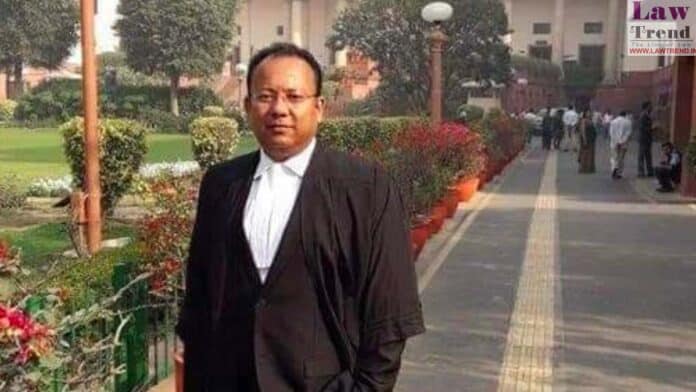Sikkim’s Additional Advocate General (AAG) Sudesh Joshi resigned on Wednesday.
The resignation comes amid public anger after the Supreme Court mentioned the Sikkimese Nepali community as immigrants while extending income tax exemption to all old settlers of the state.
“I am writing to inform you of my resignation from the post of Additional Advocate General with immediate effect,” Joshi said in a letter to Chief Secretary VB Pathak.

Expressing gratitude to the state government, he said, “Some false, unfounded and baseless allegation against me are doing rounds in social and electronic media which are absolutely devoid of merit and labelled to paint me in bad light and to attack the Government.”
Joshi said that under the prevailing situation, his conscience did not allow him to continue in his post.
“I have always been sincere towards my dearest state of Sikkim and its people. There has never been any professional dereliction of duty on my part,” he added.
The political parties of the state assailed the AAG, alleging that he did not brief the court sufficiently about the distinction between the Sikkimese Nepali population and the other old settlers, leading to the observation.
The state government has already initiated steps for filing the review petition for addressing the concerns of the Sikkimese Nepali community.
The Supreme Court in its order dated January 13, 2023, had directed the Centre to amend the definition of ‘Sikkimese’ in Section 10 (26AAA) of Income Tax Act 1961 for including income tax exemption to all Indian citizens domiciled in Sikkim on or before the merger date of April 26, 1975.
“The Union of India shall make an amendment to Explanation to Section 10 (26AAA) of IT Act, 1961, so as to suitably include a clause to extend the exemption from payment of income tax to all Indian citizens domiciled in Sikkim on or before 26th April, 1975.
“The reason for such a direction is to save explanation from unconstitutionality and to ensure parity in the facts and circumstances of the case,” said the apex court while disposing of two writ petitions.







